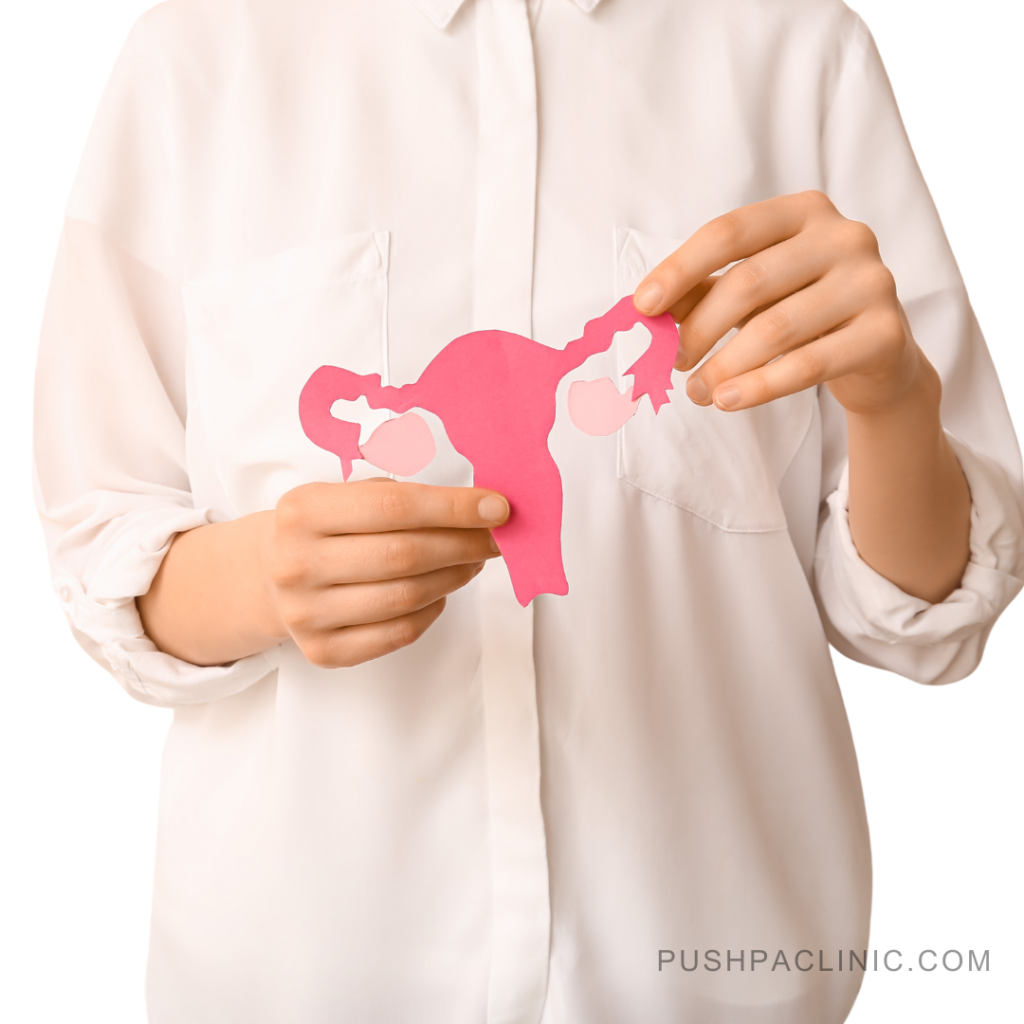Understanding Polycystic Ovarian Disorder (PCOD)
PCOD (Polycystic Ovarian Disease) is primarily brought on by an imbalance in hormones and hereditary predisposition. In a typical period of menstruation, both ovaries produce mature, ready-to-fertilize eggs every month. Conversely, in the case of PCOD, the ovaries frequently shed immature or partially developed eggs, which can grow into cysts. This also causes the ovaries to expand and become larger. In addition, PCOD is significantly more frequent, particularly among women. Approximately one-third of all menstrual women worldwide have PCOD. However, one common problem is the interchangeable use of the terms PCOD and PCOS. While in PCOD, the female reproductive organs begin to release immature eggs, resulting in an imbalance of hormones and swollen ovaries, among other symptoms; in PCOS, hormonal conditions cause the ovaries to create extra androgens (male hormones), making eggs more likely to form cysts.
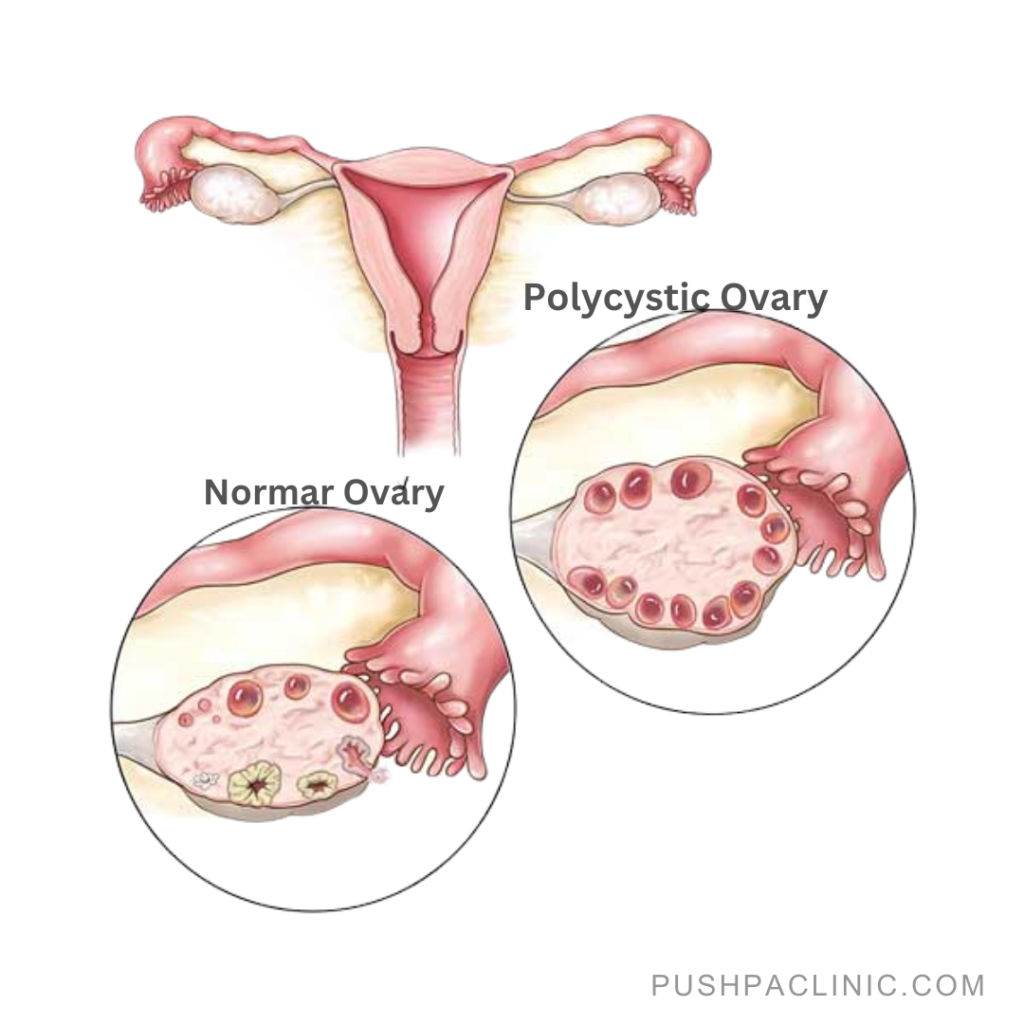
Causes of Polycystic Ovarian Disorder (PCOD)
The exact cause of Polycystic Ovarian Disorder may not be known however this condition can be caused by hormonal imbalance, stress, obesity, and improper eating habits are the causes of this.
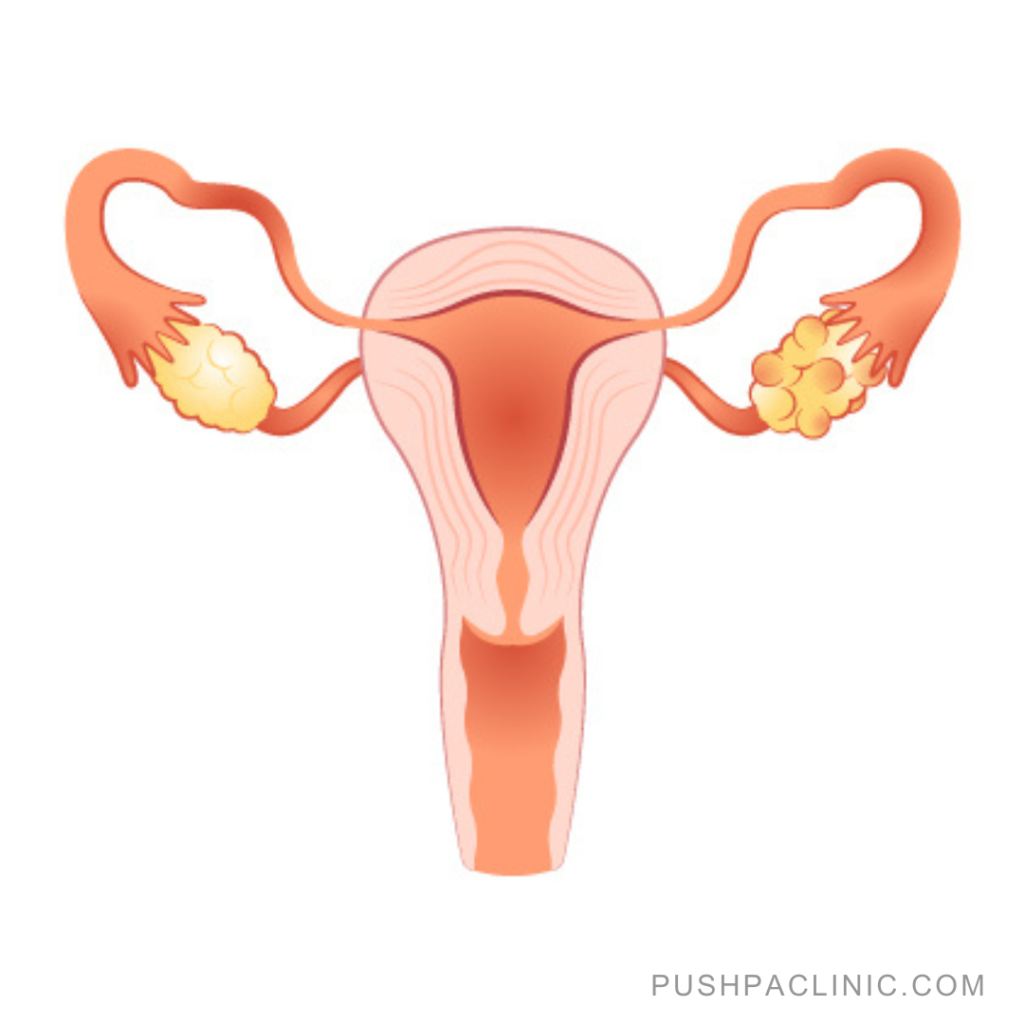
Signs and Symptoms
Some typical signs and symptoms of Polycystic Ovarian Disorder (PCOD) are irregular periods, acne, gaining weight, having difficulty conceiving; symptoms may include heavy menstrual bleeding and increased facial and body hair growth, headaches, hair thinning and skin darkening and depression.
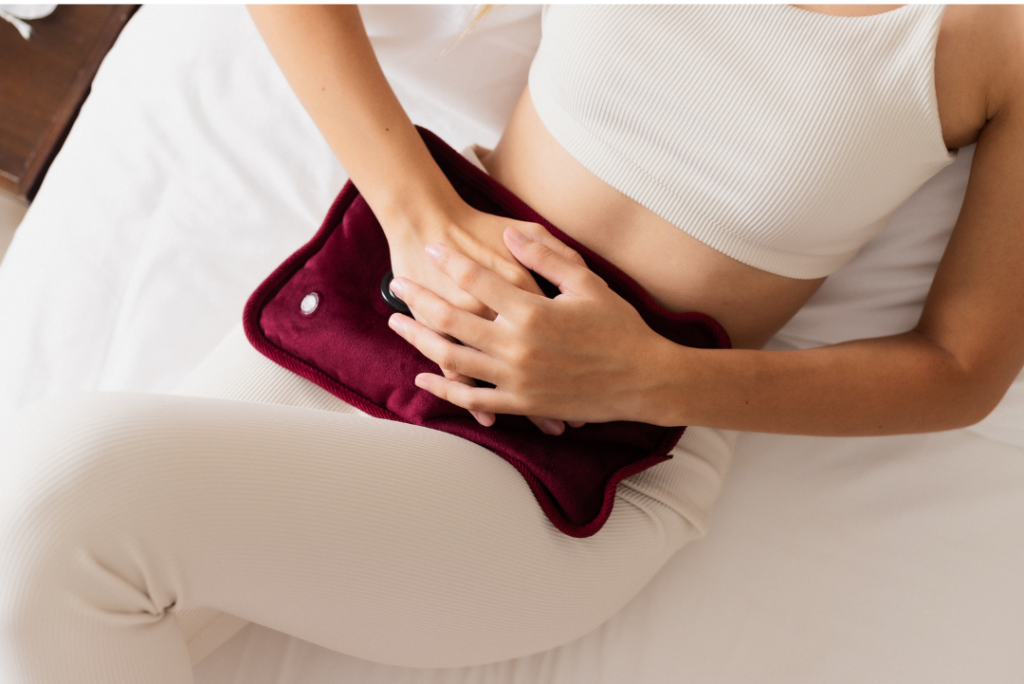
Diagnosis of Polycystic Ovarian Disorder (PCOD):
The symptoms of high androgen (male hormones) levels may include unwanted facial or body hair, thinning hair, breakouts irregular or missing menstrual periods, and polycystic ovaries that show up on an ultrasound scan. Tests on the blood can detect typical changes in hormone levels, although these alterations are not consistent.
Physical examination may happen where the blood pressure, body mass index (BMI), and waist circumference are checked. They may also examine your skin for excess hair on the face, chest, back, acne, or discolouration. The doctor could look for evidence of loss of hair or other health problems (such as an oversized thyroid). Pelvic examination might be carried out by the doctor to look for symptoms of additional male hormones (for example, an enlarged clitoris), as well as to examine if your ovaries are big or swollen. It may be followed by pelvic ultrasonography (sonogram) which uses vibrations to inspect your ovaries for cysts and the lining of your pelvis.
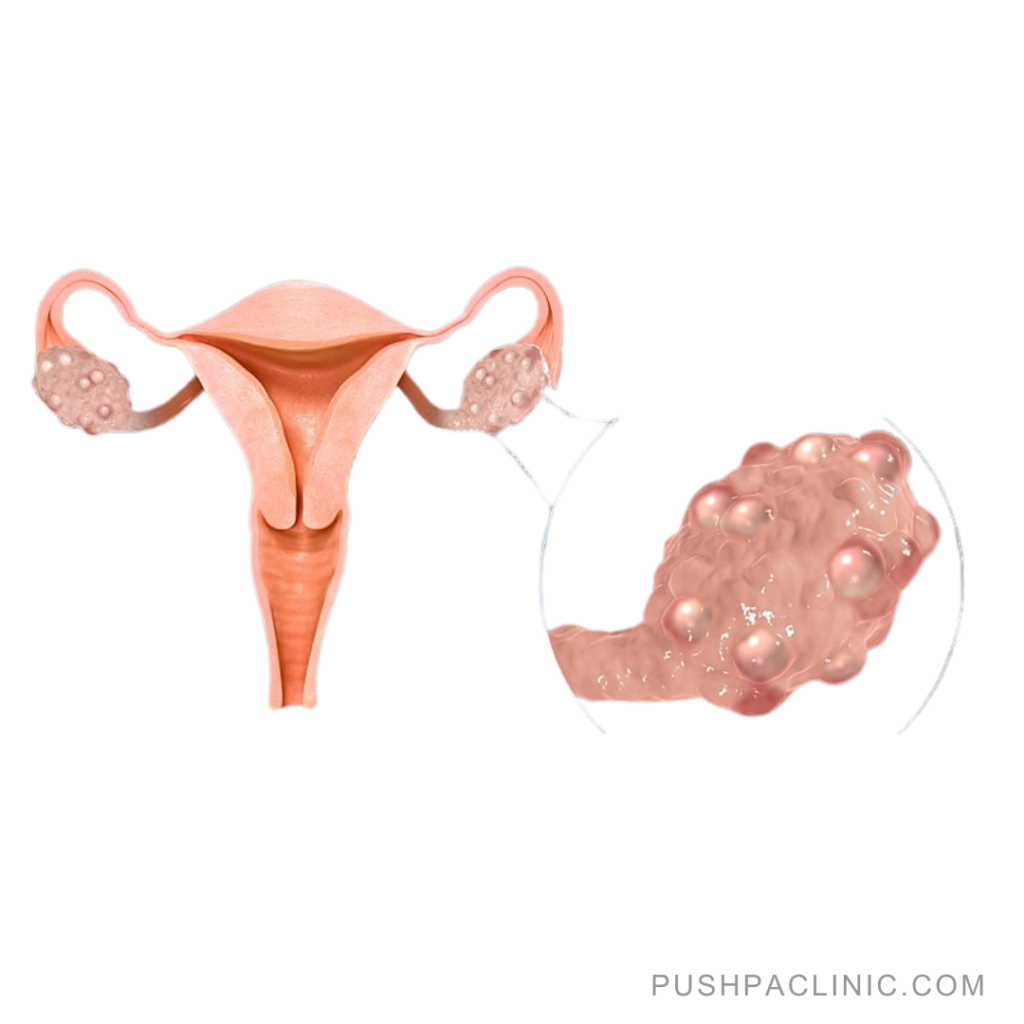
Treatment
The treatment options include the following:
1. Lifestyle Modification: In overweight and obese PCOS women and adolescents, exercise and calorie-restricted diets are the most effective first-line treatments for weight loss and IGT. Several studies have found that hirsutism may enhance and regulate the cycle of menstruation and ovulation. Low-carbohydrate diets are being adopted in the hopes that they will improve hyperinsulinism, however studies have found no change in outcomes.
2. Hormonal Contraceptive: The initial therapy for monthly irregularities, hirsutism, and acne is a hormone contraceptive, which can be oral, patch, or vaginal rings.
3. Certain medication: Metformin is also used as an alternative remedy for menstrual abnormalities in individuals who cannot use contraception with hormones. It is often used in adolescents' monotherapy to bring back normal menstrual cycles, promote weight loss, and minimize insulin resistance. Although it is not recommended to be used to treat clinical hyperandrogenism, it can alleviate androgen (male hormone) excess symptoms.
4. Home remedies : Some home remedies are as follows:-
Aloe Vera: Aloe Vera is an organic source of relief for PCOD. It restricts the development and production of ovarian cysts. It also encourages monthly periods and helps to keep hormone levels balanced.
Fenugreek and fennel seeds: These food items are high in medicinal characteristics and can be used to treat a variety of health issues. Fennel seeds aid to reduce cyst growth in the ovaries. Fenugreek seeds serve a crucial role in hormone balance.
Fish Oil Capsule: Fish oil contains omega-3 fatty acids. It aids in the treatment of PCOD and balances the body's hormones.
